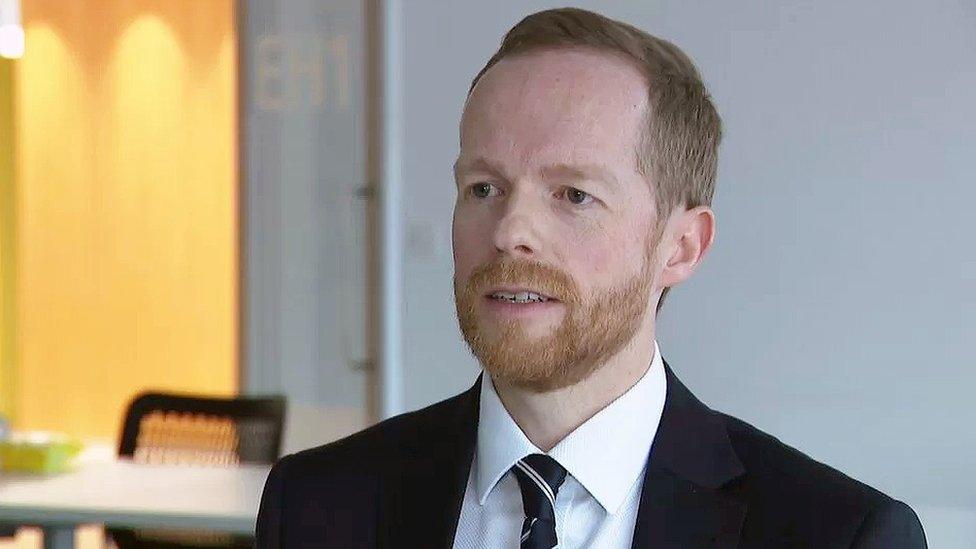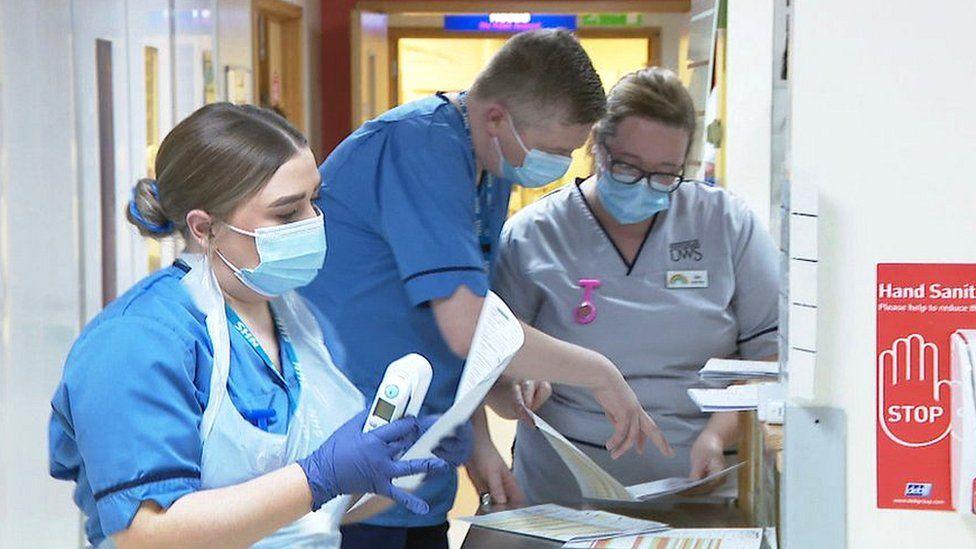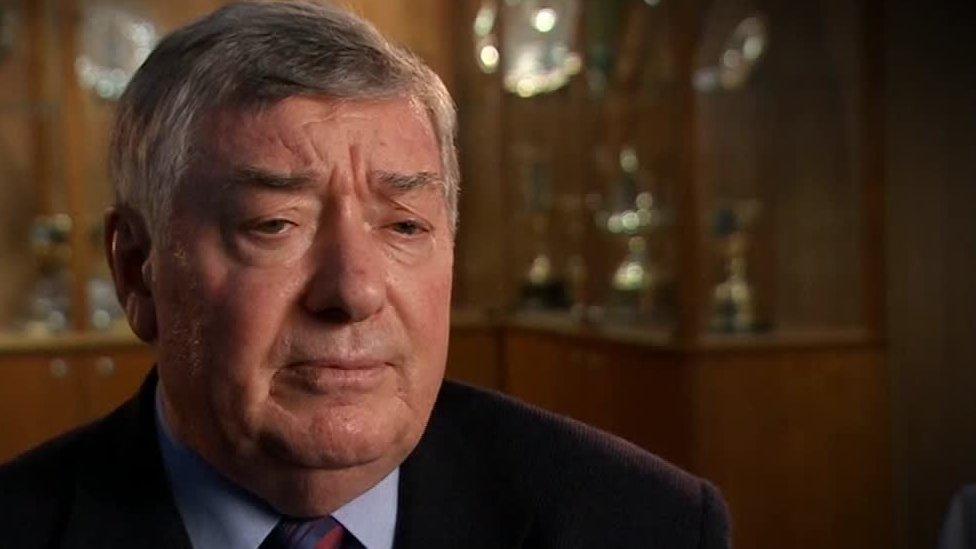Audit Scotland calls for quick public service reform
- Published

Auditor general Stephen Boyle said next year's challenges were "likely to be even harder"
Scotland's public sector needs to reform quickly to avoid an unprecedented overspend, auditors have warned.
An Audit Scotland briefing said the next budget would be "challenging" for the Scottish government.
It is under growing pressure from rising prices, including increased pay deals for public sector workers which have already cost an extra £700m.
A government spokesman said they would need to "make tough decisions".
In May, Finance Secretary Kate Forbes said the public sector had to "reshape and refocus", warning continued growth of staffing levels was not sustainable.
Her resource spending review, which set out indicative plans for the remainder of this parliamentary term, had a broad aim of keeping the pay bill for 2023/24 the same as 2022/23.
Mr Swinney, who is covering Ms Forbes's maternity leave, announced £615m of spending cuts in his emergency budget review earlier this month.
Audit Scotland said the next budget would be affected by spending and tax decisions taken at a UK level.
But it said reform was "inevitable" for Scotland's 129 public bodies, and the pace and scale of these reforms needed to increase.

Audit Scotland called for plans including a National Care Service to be implemented effectively
Auditor general Stephen Boyle told BBC Scotland next year's financial challenges were "likely to be even harder".
He said: "We've commented for many years that parts of the Scottish public sector, particularly the NHS and social care, is unsustainable - that there needs to reform there.
"But in light of the financial challenges there's a very real risk that this unsustainable picture is affecting much wider parts of the Scottish public sector."
Mr Boyle said pressures on Scotland's public finances pre-dated the current economic crisis and the Covid pandemic, but had worsened because of them.
Rising costs in the public sector include:
Enhanced pay offers negotiated for workers, reaching £700m so far.
Rising fuel costs for bodies using national framework agreements - an increase of 197% for gas and 27.5% for electricity in the past year.
Capital projects increasing by about 30%.
Increasing food bills - councils are expecting an 5% rise on their annual £86m spend over the next year.
Mr Boyle called for the Scottish government to effectively implement plans laid out in its resource spending review.
These include establishing a National Care Service, replacing education bodies and changes to the justice system, as well as maintaining the level of the pay bill.
"Those reforms need to be done much more quickly and more successfully than they have been in previous iterations," Mr Boyle added.
'Return to austerity'
Public Finance Minister Tom Arthur said the government recognised the scale of the challenge ahead.
He said: "The Scottish budget today is worth £1.7bn less than when it was published last December because of the rapid rise in inflation and the current devolution settlement leaves us limited in the amount we can borrow.
"At the same time, demand for government support is understandably increasing and so to prioritise help where it is needed most, we have to make tough decisions."
He added: "The decisions we will have to take will only be exacerbated if there is a return to austerity by the UK government.
"That would heap further pressure onto the cost-of-living crisis people are facing in Scotland."
Unison's Scottish secretary Tracey Dalling called for an increase in Scottish taxes to raise more money.
"Holyrood isn't powerless - and much could be done through more use of the higher rate of income tax, property taxes and the long overdue reform of the council tax," she said.
"Spending hundreds of millions setting up a National Care Service when thousands of vulnerable people are waiting to receive a service could be a catastrophic choice for the people of Scotland."
Related topics
- Published4 November 2022

- Published3 November 2022

- Published22 September 2022

- Published16 June 2022

- Published8 September 2021
